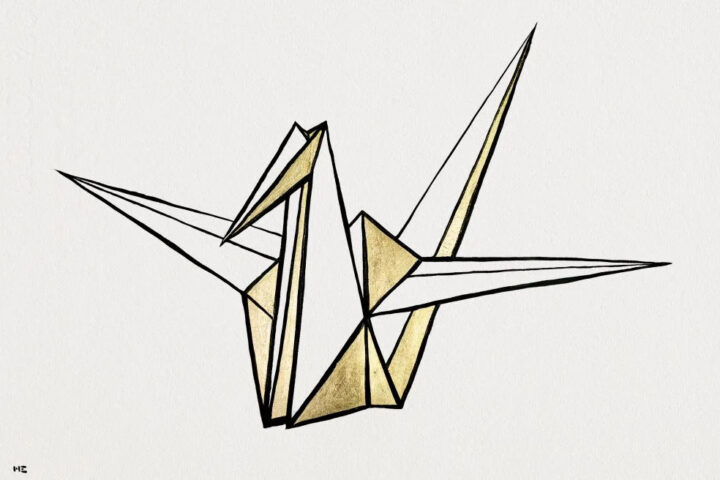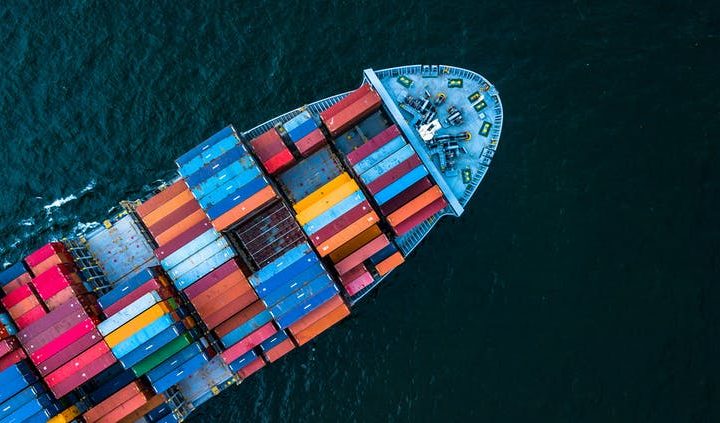International Criminal Court (ICC) prosecutor Karim Khan’s request for arrest warrants against Israeli Prime Minister Benjamin Netanyahu and senior Hamas leaders marks a pivotal moment in international justice. The move, unprecedented in its scope and implications, is an essential step in de-escalating the situation in the Middle East, and sends a clear message against those who claim to be above the law or any kind of collective regulation. This last point is crucial in the current global war regime.
According to Michael Hardt and Sandro Mezzadra, we have entered a period of war without end, extending across the globe and unsettling even the central nodes of the world system. One of the many characteristics mentioned by Hardt and Mezzara is that currently, “…the increasing imbrication of ‘geopolitics’ and ‘geoeconomics,’ amid a constant making and remaking of spaces of valorization and accumulation,” intersects “with the contested distribution of political power across the planet.”
We can see then why many have criticized Khan’s investigation. It turns out that he has struck directly at the heart of the current war regime.
Khan’s Call for Accountability: War Crimes Charges Against Israel and Hamas
Khan, appointed ICC Prosecutor in 2021, has a notable background in international law, having worked on high-profile cases involving ISIS, the former Yugoslavia, and Rwanda. His tenure has been marked by a commitment to holding perpetrators of war crimes accountable, irrespective of their political stature or the international political ramifications. His approach to justice is informed by his belief that international humanitarian law must be upheld universally.
It is precisely because of all those elements that he has remained firm: “We are not going to be swayed by the different types of threats, some of which are public and some of which may be not,” the prosecutor told CNN in a recent interview. “This is not a witch hunt. This is not some kind of emotional reaction to noise. It’s a forensic process that is expected of us as international prosecutors, as an independent court, to build evidence that is solid that will not dissolve in the courtroom.”
Khan’s request for arrest warrants is based on substantial evidence suggesting that both Israeli and Hamas officials bear “criminal responsibility” for severe violations of international humanitarian law.
According to the statement published on May 20, the Head of the Islamic Resistance Movement, Yahya Sinwar; Commander-in-Chief of the Al-Qassam Brigades, Mohammed Diab Ibrahim Al-Masri; and the Head of Hamas Political Bureau, Ismail Haniyeh, should be charged in connection with the October 7 attacks on Israel. In addition, the Hamas leaders should face charges of extermination, murder, hostage-taking, rape and other acts of sexual violence, torture and cruel treatment.
On the other side, Netanyahu and Minister of Defense of Israel, Yoav Gallant bear responsibility for several international crimes since Israel began its military operation against Hamas, including the starvation of civilians as a method of warfare, willfully causing great suffering, willful killing, intentional attacks against a civilian population, extermination and/or murder and persecution. In this case, the prosecutor claimed that these crimes “… were part of a widespread and systematic attack against the Palestinian civilian population as state policy.”
Challenges and Criticisms After Applications for Arrest Warrants
However, while significant, the ICC’s decision already faces numerous challenges and criticisms. The court’s jurisdictional limitations and non-recognition by key states such as Israel and the US complicate the execution of possible arrest warrants. The effectiveness of these orders depends on the cooperation of states that have ratified the Rome Statute, which created the ICC.
Moreover, the decision has also provoked a polarized response from the international community. Israel’s main Western allies, including the United States and the United Kingdom, have vehemently criticized the move. US President Joe Biden called the application “outrageous,” arguing that there is no equivalence between Israel’s actions and Hamas’. Similarly, Secretary of State Antony Blinken described the comparison as “shameful,” and both stressed that the ICC lacks jurisdiction in this matter, as neither Israel nor the US recognizes the court’s authority.
On the other hand, some European nations, notably Germany, France, and Switzerland, have voiced support for the ICC’s independence and the necessity of combating impunity.
Meanwhile, Israel has firmly rejected the ICC’s allegations, with Prime Minister Netanyahu denouncing the move as a “moral outrage of historic proportions.” He argued that it undermines Israel’s right to self-defense and unjustly equates a democratic state with a terrorist organization like Hamas. Defense Minister Gallant echoed this opinion, claiming that the Israeli military adheres to international law and takes unique humanitarian efforts unprecedented in armed conflicts.
During the already mentioned interview of Khan with CNN, he shared that “some elected leaders” had spoken to him and had been very direct: “This court is built for Africa and for thugs like Putin.” In fact, days before Khan’s announcement, a group of influential Republican senators sent a letter to the chief prosecutor of the ICC, warning him not to issue international arrest warrants against Netanyahu and other Israeli officials, threatening him with “severe sanctions” if he did so.
According to Zeteo, which first revealed the letter, the one-page document was signed by 12 Republican Party senators, including Tom Cotton of Arkansas, Marco Rubio of Florida, and Ted Cruz of Texas. The document even informs Khan that any attempt by the ICC to hold Netanyahu and his colleagues accountable for their actions in Gaza will be interpreted “not only as a threat to Israel’s sovereignty, but to the sovereignty of the United States.”
They even went into directly threatening Khan, the ICC, and the values that inspired its creation by saying, “Target Israel and we will target you. If you move forward with the measures indicated in the report, we will move to end all American support for the ICC, sanction your employees and associates, and bar you and your families from the United States. You have been warned.”
Logically, no argument can support that view. On the one hand, more than enough evidence has accumulated during the last eight months of the war. As of today, the death toll in Gaza surpasses 35,000, of which 69% are children and women. There have been credible reports of attacks on public institutions, the press, and non-profit organizations working on the ground to provide food and health aid. Furthermore, the scope of the Israeli attack also targets the entire Palestinian community, morally and culturally, in both Gaza and the West Bank. There have been attacks against the Palestinian people, describing them as animals and using derogatory language. Not to mention Israel’s efforts to force a famine, applying not only strict controls over its borders but over every piece of material that enters and leaves that area.
The GOP letter cannot be justified on moral or political grounds. Why, for example, can ICC standards be applied in Africa and Russia but not in the United States or Israel? On what basis can anyone defend the right to be superior to other people? We all know enough history to understand the consequences of that kind of moral superiority. Ironically, this very mindset contributed to the origins of the Holocaust against the Jews.
The future disaster of an effective attack on the ICC would create a massive backlash against the organization. Then, what else will be left of the international justice order erected after the defeat of Nazism in the 20th century? Nothing, nothing will remain in place. That is why the applications for arrest warrants and the capture and prosecution of Netanyahu, Gallant, and the Hamas leaders are so important. The current order is far from perfect, but with the weakening of these structures, we are inevitably heading towards an increasingly violent and authoritarian future governed by the rules of confrontation and in a regime of constant war.
International Justice at a Crossroads
David Harvey recently stated in an interview that today, “we’re seeing the emergence of an ethno-nationalist protectionism-autarky, which is a different model.” Besides, “We could be headed into something which is much less pleasant than neoliberalism, the division of the world into warring and protectionist factions who are fighting each other over trade and everything else.”
That’s why the ICC’s recent decision against Israeli and Hamas leaders represents a critical juncture in the pursuit of international justice. Whether these efforts will lead to tangible justice or exacerbate international tensions remains to be seen. What is clear is that the ICC’s statement has already made a profound impact on the discourse surrounding international justice.
Ultimately, the point is to defend what prosecutor Karim Khan said at the end of his application on May 20:
“Let us today be clear on one core issue: if we do not demonstrate our willingness to apply the law equally, if it is seen as being applied selectively, we will be creating the conditions for its collapse. In doing so, we will be loosening the remaining bonds that hold us together, the stabilizing connections between all communities and individuals, the safety net to which all victims look in times of suffering. This is the true risk we face in this moment.”
This is undoubtedly a key step towards achieving the solidarity-based peace we need to recreate a global system of greater social justice.




